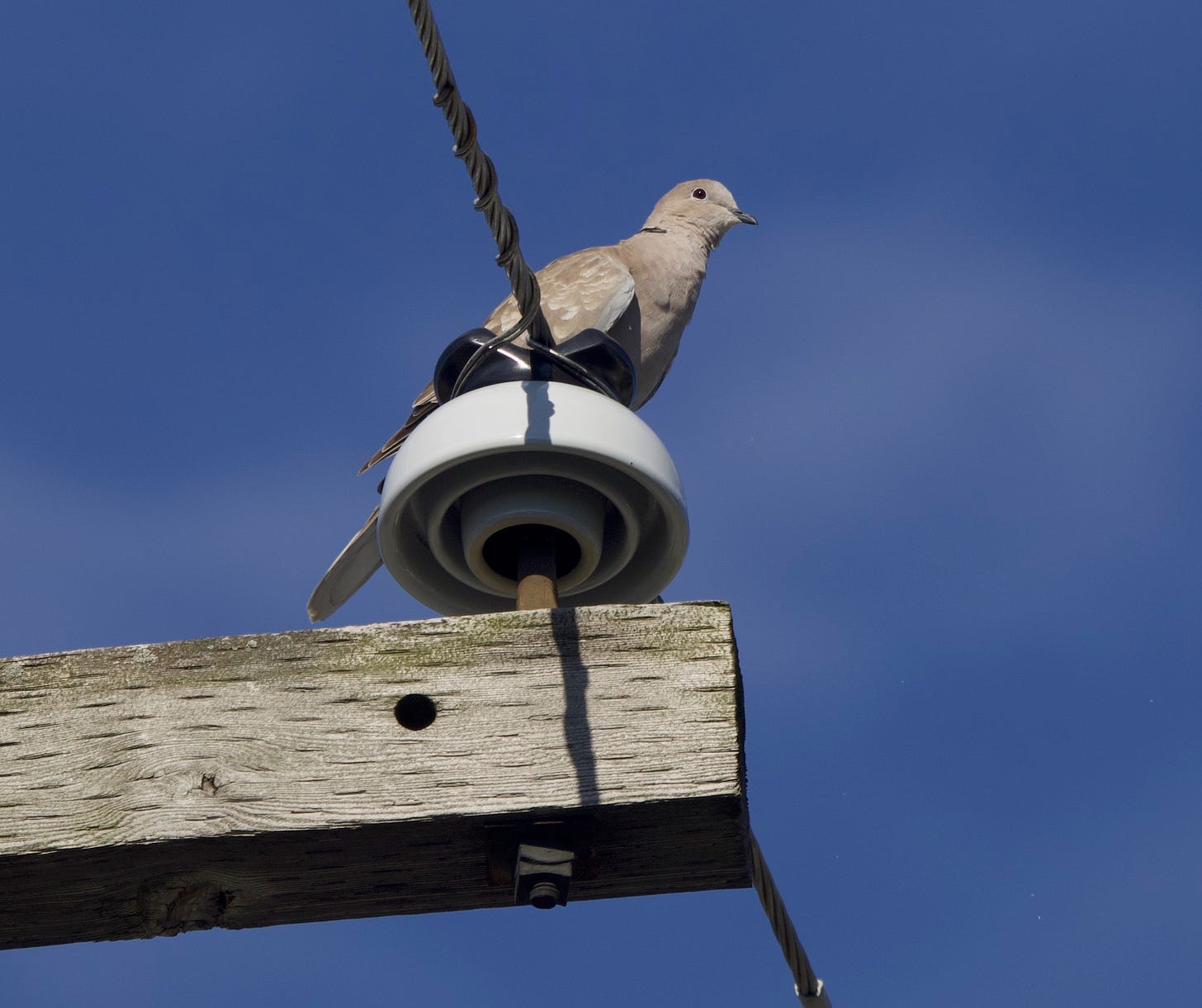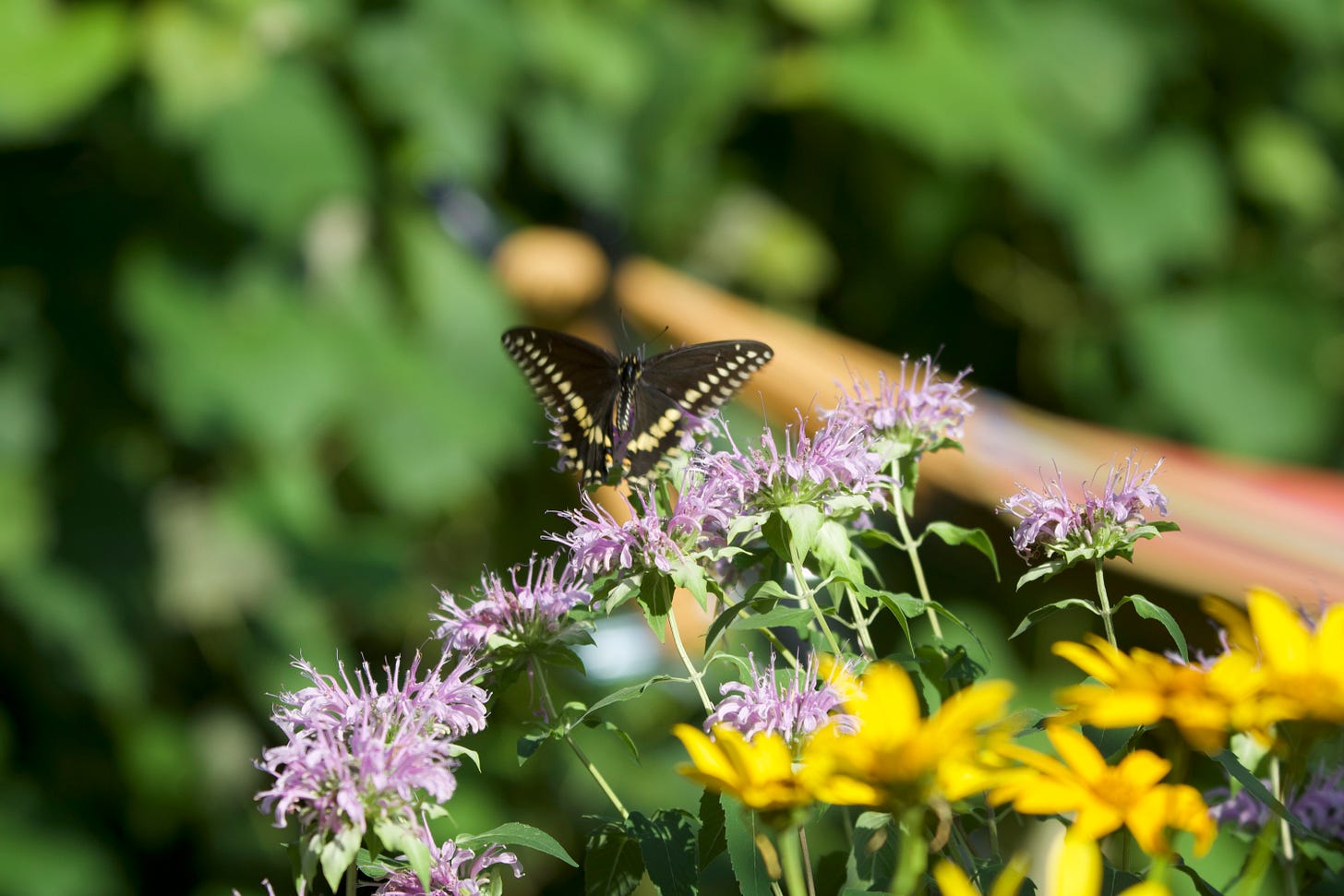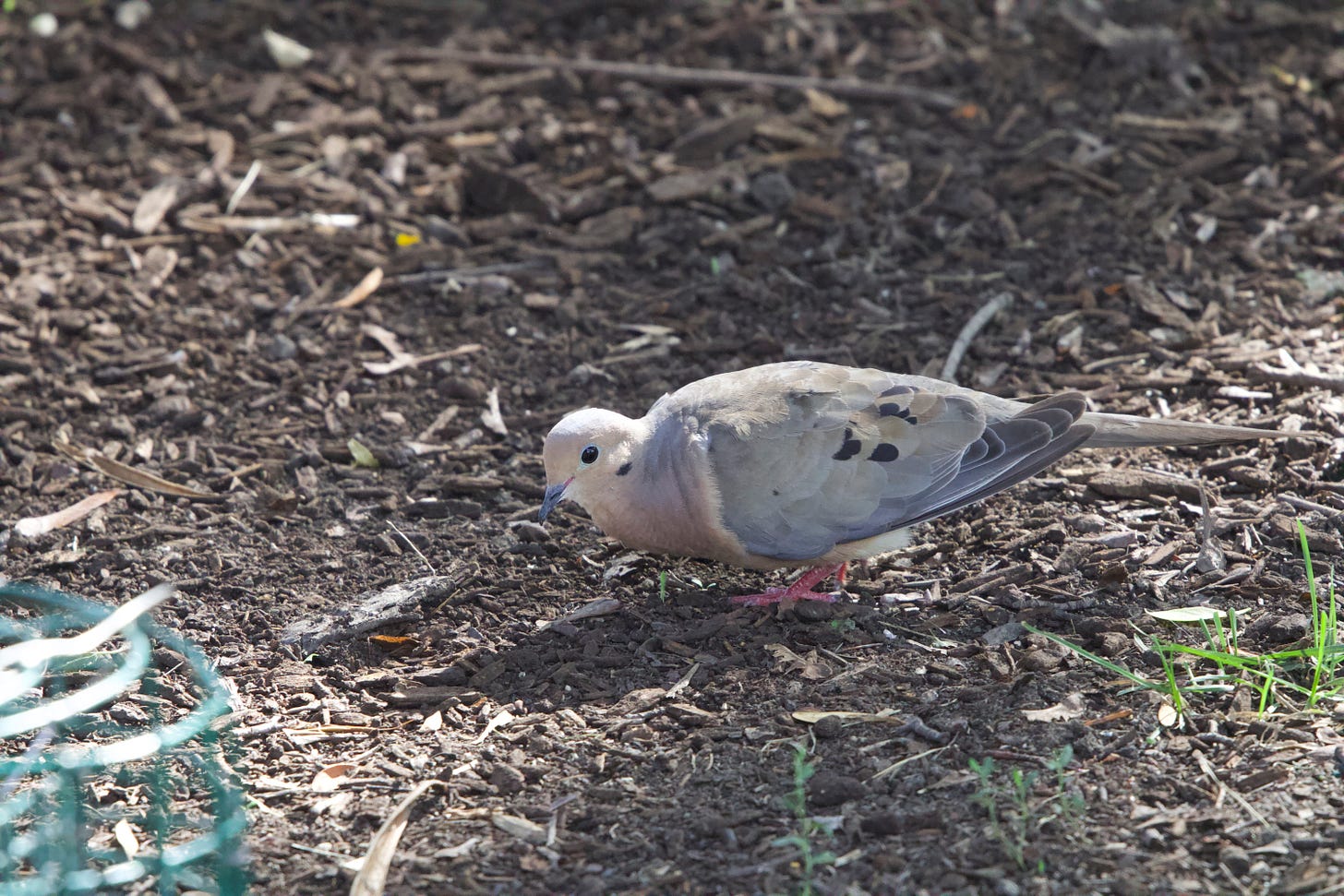What I did this summer, aka neighborhood birding
What would you do if you had a million dollars?
Peter Gibbons: What would you do if you had a million dollars?
Peter Gibbons: Nothing.
Lawrence: Nothing, huh?
Peter Gibbons: I'd relax, I would sit on my [back side] all day, I would do nothing.
That’s a bit of dialog from the stellar 2001 workplace comedy “Office Space.” The main character, Peter Gibbons, a down-on-his-luck software developer, is having a conversation with his beer-swilling neighbor, Lawrence. They discuss the answer to the theoretical question of what you’d do if you had an endless sum of money and a personal fortune.
That’s not the situation I walked into this summer, or exactly what I did. But that summed up quite a bit of my birding. I mostly waited for the birds to come to me rather than chasing rarities, building up lifers, or racking up county ticks. It was something, but it also felt like nothing at all.
I recently celebrated two years of living on the Lake Border Upland, aka the Northwest Side of Chicago. We’re up on a lobe of a moraine that separates the North Branch of the Chicago River from the Des Plaines River drainage. The Continental Divide it’s not.
One thing we do have, though, oddly enough, is the Eurasian Collared Dove, maybe the city’s biggest concentration of the exotic species, first released in Florida in the 1980s. For whatever reason, they gravitate to an alley behind a nearby tapas restaurant. Like me, they must be fans of the paprika-rich papas bravas.
Until recently, Eurasian Collared Doves in our little enclave north of Elston have been rare. Something about the diagonal thoroughfare, maybe the surfeit of hot dog stands, has kept them south. This summer, though, two or three have been hanging around our yard and a few other nearby side streets. They provide a modest diversion when one has grown overly familiar with the many Mourning Doves and Rock Pigeons. They’re bigger than Mourning Doves, with a large squared-off tail and the namesake collar. The males give the distinctive koo-KOO-kook song to defend territories and attract mates. They sound a bit like Mourning Doves that are out of breath and a little wheezy.
Two other discoveries are in nearby forest preserves. One is down the hill from the upland, along the North Branch lowland forest. There’s a thick tangle of grapevines draped over several trees. All sorts of birds, from robins to woodpeckers to buntings have been visiting these vines as the fruit has matured. It seems this is going to be a place to keep checking lest any frugivorous rarities arrive this fall.
Then there’s the nearest state natural area, Sidney R. Yates Flatwoods, on Forest Preserve property mostly bound by Caldwell Avenue and the North Branch Trail. Until this summer, I hadn’t really ventured into the flatwoods. Is this even allowed? I’m not sure, but most of the urban forest preserves are laden with informal foot paths, for better or worse. For better, it means exploring and opportunities for community science. For worse, it means the potential for harm to vegetation such as spring ephemeral wildflowers. Alas, it’s an idyllic area, for its rolling topography, towering oaks, and lack of street noise. I suspect this is an area that may harbor a few surprises through the seasons, with potential for interesting winter and summer birds alike.
As always, sometimes the most delightful adventures begin when walking out the front door or even just in the back yard. The summer wasn’t entirely sedentary, though, and next week I’ll be back with a dispatch from more northerly climes.
Press the like button below if you enjoyed this post, or leave a comment!











I would turn every pond,lake, stream, park, or any land or body of water,and or forest I could that has become overwhelmed with LITTER into a sanctuary that I possibly could with that money. That way ppl could not fish&or leave LITTER without paying a hefty fine. I'd create a safe harbor for any animals that live at these locations, frequent, &or nest at these places so they would never have to worry about getting entangled in fishing line&hooks, or there babies suffocating in plastic bags floating in the water. I'd also pay ppl to guard these locations, so ppl would be held accountable for their actions if they did break any of these rules.
Welcome back! I really appreciate your normalization of backyard bird watching, and enjoying the so-called "common" species.
Every time I've driven past those flatwoods they look like an inviting space to explore, but I haven't taken the opportunity yet. Sounds like it's definitely worth it.